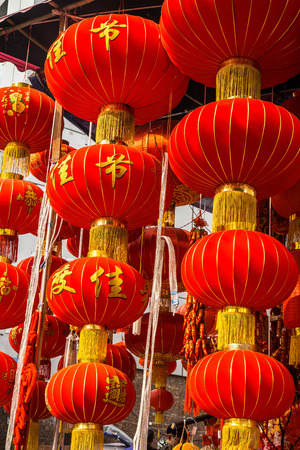1. Understanding Feng Shui: The Basics for American Homeowners
Feng Shui may sound mysterious, but at its core, it’s an ancient Chinese practice focused on creating harmony between people and their living spaces. While it originated thousands of years ago in China, today, many Americans are discovering how these principles can be relevant—and even beneficial—in the U.S. housing market.
What Is Feng Shui?
Feng Shui (pronounced “fung shway”) means “wind” and “water.” It’s all about arranging your home or property to encourage positive energy, known as “chi,” to flow freely. The goal is to promote well-being, balance, and prosperity for everyone who lives there.
Historical Roots
The roots of Feng Shui go back over 3,000 years. Originally, it was used to select the best locations for homes, farms, and entire cities in China by considering environmental factors like sunlight, wind patterns, and water sources. Over time, it evolved into a system that considers how interior design and furniture placement affect energy flow inside a home.
Key Principles of Feng Shui Adapted for U.S. Homes
| Core Principle | Traditional Meaning | How It Applies in the U.S. |
|---|---|---|
| The Bagua Map | A tool used to map out areas of life (like wealth or relationships) onto different parts of the home. | Helps homeowners organize rooms with intention—like placing a family photo in the “relationships” area or a plant in the “wealth” zone. |
| Five Elements | Wood, Fire, Earth, Metal, Water—each brings unique energy into a space. | Choose décor items (like wooden tables or metal frames) to balance these elements throughout your house. |
| Chi Flow | The movement of energy through a space should be smooth and unobstructed. | Avoid cluttered hallways or blocked entryways so energy (and people!) can move easily. |
| Main Entrance Importance | The front door is called the “mouth of chi”—it’s where energy enters your home. | Keep entryways clear, well-lit, and inviting to attract positive vibes (and maybe even buyers). |
Why U.S. Homeowners Are Paying Attention
As interest grows in holistic living and mindful design, more Americans are using Feng Shui concepts when buying or staging homes. Whether you’re looking to boost curb appeal or simply want your space to feel more balanced, understanding these basics can help you make smart choices—without needing any prior knowledge of Eastern philosophy.
2. Common Feng Shui Myths in the U.S. Housing Market
When it comes to real estate, feng shui often pops up in conversations—especially in diverse cities like Los Angeles, San Francisco, and New York. But while many Americans have heard of feng shui, there are plenty of myths floating around. Let’s clear up some of the most common misconceptions you might encounter when buying or selling a home in the U.S.
Myth vs. Fact: Understanding Feng Shui in American Homes
| Myth | Fact |
|---|---|
| Feng shui is only for Asian buyers. | People of all backgrounds use feng shui principles to create comfortable, balanced homes. |
| You must renovate your entire house to achieve good feng shui. | Small changes—like moving furniture or adding plants—can improve energy flow without major renovations. |
| Feng shui means filling your home with lucky charms and trinkets. | The focus is on arrangement, light, color, and balance—not just decorations or symbols. |
| If your home faces the “wrong” direction, it’s unsellable. | While some buyers care about direction, most value overall comfort, layout, and location more than compass points alone. |
| Feng shui is a religious practice that conflicts with Western beliefs. | Feng shui is about harmony and well-being; it’s not tied to religion and can fit any lifestyle or belief system. |
How These Myths Affect the U.S. Real Estate Market
Because these myths persist, sellers sometimes worry that their homes won’t appeal to buyers who care about feng shui—or they might spend extra money on unnecessary upgrades. On the flip side, buyers may overlook great properties based on misunderstandings instead of real needs or preferences. Knowing what really matters helps everyone make smarter decisions.
Spotting Feng Shui Features in American Listings
You might see real estate listings mention things like “good energy flow,” “open floor plan,” or “welcoming entryway.” These aren’t just buzzwords—they often reflect basic feng shui ideas that appeal to many buyers, regardless of their background.
Key Takeaway for Homebuyers and Sellers
The best approach is to separate fact from fiction. Whether you’re staging a home or looking for your dream property, understanding true feng shui principles—and knowing which myths to ignore—can help you navigate the U.S. housing market with confidence.

3. Does Feng Shui Really Affect Property Value?
Understanding Feng Shui’s Influence on Home Prices in the U.S.
Feng shui, an ancient Chinese practice, is about creating harmony between people and their living spaces. But how much does it actually impact property value in America? The answer depends on several factors, including location, local demographics, and cultural attitudes.
Regional Differences: Where Feng Shui Matters Most
In some U.S. cities with large Asian-American populations—such as San Francisco, Los Angeles, and New York—feng shui principles can play a bigger role in real estate decisions. Buyers may be willing to pay more for homes with good feng shui or avoid properties that have features considered unlucky. In contrast, in regions where feng shui is less familiar, its effect on pricing is minimal.
How Feng Shui Impacts Marketability and Price
| Region | Feng Shui Awareness | Impact on Home Value | Common Buyer Requests |
|---|---|---|---|
| West Coast (e.g., San Francisco) | High | Potential price premium for favorable layouts; discounts for “bad luck” features | No stairs facing the front door, no bathrooms above kitchens |
| Northeast (e.g., New York City) | Moderate to High | Slight influence in certain neighborhoods; depends on buyer demographics | Good energy flow, unobstructed entryways |
| Southeast & Midwest | Low to Moderate | Minimal impact except in specific communities | Rarely mentioned in sales negotiations |
| Other Areas | Low | No significant effect on price or speed of sale | N/A |
Real-Life Examples from Agents and Buyers
Some realtors in California report homes selling faster and at higher prices when they follow basic feng shui guidelines, such as having a clear front entrance or avoiding sharp angles pointing at beds. Meanwhile, other agents say most buyers focus more on practical concerns like school districts and commute times than on feng shui details.
The Bottom Line: It Depends on the Buyer and the Market
If you’re selling a home in a diverse city with many international buyers, especially those from East Asia, paying attention to feng shui might give your property an edge. In other parts of the country, its impact is usually minor—unless you find a buyer who cares about it.
4. Practical Feng Shui Tips for American Homes
Bringing Balance and Comfort into Everyday Living
Feng shui isn’t just for ancient temples or luxury estates—it can be easily adapted to fit the needs of American households. You don’t need to buy special charms or follow rituals; instead, focus on simple changes that promote comfort, flow, and well-being in your living space.
Simple Feng Shui Strategies for U.S. Homes
| Area | Easy Feng Shui Tip | Why It Works |
|---|---|---|
| Front Entrance | Keep it tidy and welcoming with a clean doormat and some greenery. | Makes a great first impression and invites positive energy (or “chi”) inside. |
| Living Room | Arrange furniture so seating faces the door, but not directly in line with it. | Encourages conversation and helps everyone feel secure and relaxed. |
| Kitchen | Keep countertops clutter-free and use natural light as much as possible. | Promotes nourishment, health, and harmony among family members. |
| Bedroom | Place the bed against a solid wall, away from the door if possible. Use soft colors. | Improves sleep quality by providing support and a sense of safety. |
| Home Office | Sit facing the entrance while working, avoid having your back to the door. | Boosts focus and career luck by helping you feel more in control. |
Decluttering: The Easiest Way to Improve Energy Flow
A cluttered home can make you feel overwhelmed or stuck. Make a habit of regularly clearing out unused items—donate what you no longer need. This is one feng shui practice that fits perfectly with the American love of organized spaces!
Add Plants for Freshness and Growth
Houseplants are an easy way to bring life and positive energy into any room. Choose low-maintenance varieties like pothos or snake plants, which thrive indoors across most U.S. climates. Just be sure not to overdo it; one or two per room is plenty.
Light Matters: Maximize Natural Light Where Possible
If you have large windows or sliding glass doors—a common feature in many American homes—keep them clean and unobstructed. If natural light is limited, use bright but warm artificial lighting to keep spaces feeling cheerful and open.
5. Respecting Cultural Diversity in Real Estate
Why Cultural Sensitivity Matters in the U.S. Housing Market
The United States is one of the most culturally diverse countries in the world. People from all backgrounds buy and sell homes here, bringing unique traditions and beliefs with them. One example is feng shui, a practice rooted in Chinese culture that focuses on harmony between people and their living spaces. Understanding and respecting these cultural values can make a real estate professional stand out, helping buyers and sellers feel more comfortable and confident throughout the process.
Serving Diverse Clients: Going Beyond the Basics
In today’s market, being culturally aware isn’t just nice—it’s necessary. Whether your clients are first-generation immigrants or families who have lived in the U.S. for generations, everyone wants to feel respected and understood. Small gestures, like knowing the basics of feng shui or being open to other cultural practices, can have a big impact on your relationship with clients.
Examples of Cultural Sensitivity in Action
| Cultural Practice | What It Means for Real Estate | How Agents Can Help |
|---|---|---|
| Feng Shui | Some buyers may avoid homes with certain layouts or locations (like stairs facing the front door) | Be open to property requests based on feng shui; highlight features that support positive energy flow |
| Lunar New Year Traditions | Clients might want to move in before or after specific dates for good luck | Accommodate scheduling preferences tied to holidays or lucky days |
| Number Superstitions | Certain numbers (like 8) are considered lucky, while others (like 4) may be avoided | Be mindful when showing properties with certain street or unit numbers |
Building Trust Through Understanding
Cultural sensitivity isn’t about knowing every tradition by heart—it’s about being willing to listen and learn. When real estate agents ask questions and show respect for clients’ beliefs, it helps build trust. This not only leads to smoother transactions but also creates lasting relationships and positive referrals.
Key Takeaways for Real Estate Professionals:
- Acknowledge and respect clients’ cultural preferences, including feng shui considerations.
- Communicate openly—if you’re unsure about a custom, ask politely and express your willingness to accommodate.
- Stay curious about different traditions; it helps you serve all clients better.
- Remember, making someone feel at home starts long before they get their keys.


